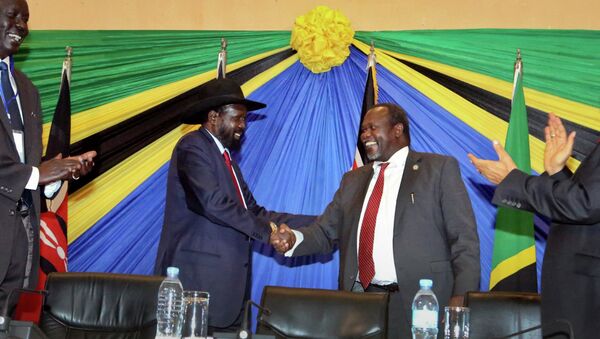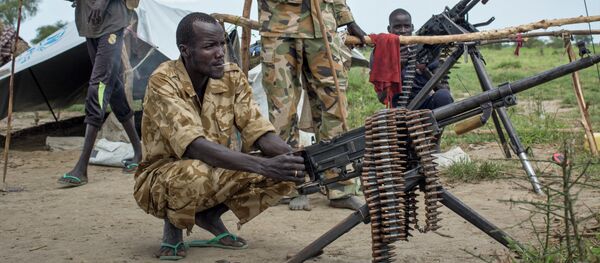"Complete cessation of hostilities in South Sudan is expected as of this morning [Monday]," chief IGAD [Intergovernmental Authority on Development] negotiator Seyoum Mesfin told reporters in Abbis Ababa as the deal was signed, according to AFP.
Macher, Kiir's former vice president who opposed him military after being fired by the president in July 2013, said after signing: "This is a partial agreement because we have not solved some of the most critical issues." Macher, who was accused by Kiir of a plot to overthrow the government in December 2013, cited disagreements over the "transitional government structure" to divide responsibilities in the proposed administration.
Now that the deal has been agreed to, talks have now been adjourned until February 20, with the BBC reporting that the parties are expected to use the time to consider the power-sharing arrangements before concluding a final agreement before March 5. Mediators from the IGAD bloc of eight East African nations have threatened to follow through with threats of sanctions if the terms of the ceasefire are again broken, and patience is wearing thin: this is the eighth summit to attempt a solution. Mesfin told AFP that IGAD would ask for "tough measures" from the UN Security Council and the African Union's Peace and Security Council in the event of further violations.
The Dinka and Neur tribes warred against each other in other in Sudan's civil war during the early 1990s, and the current conflict is also being fought predominantly among tribal lines. Monday's agreement is the latest of numerous attempts to end the fighting. A ceasefire deal agreed to in November was broken within hours, and a western diplomat told AFP that the current deal “is not a significant breakthrough, this is a small step at the most."
South Sudan became an independent state in 2011 after voting in a referendum for independence from Sudan. The secession came after five decades of conflict in Sudan since the country gained independence from British colonial rule in 1956.




